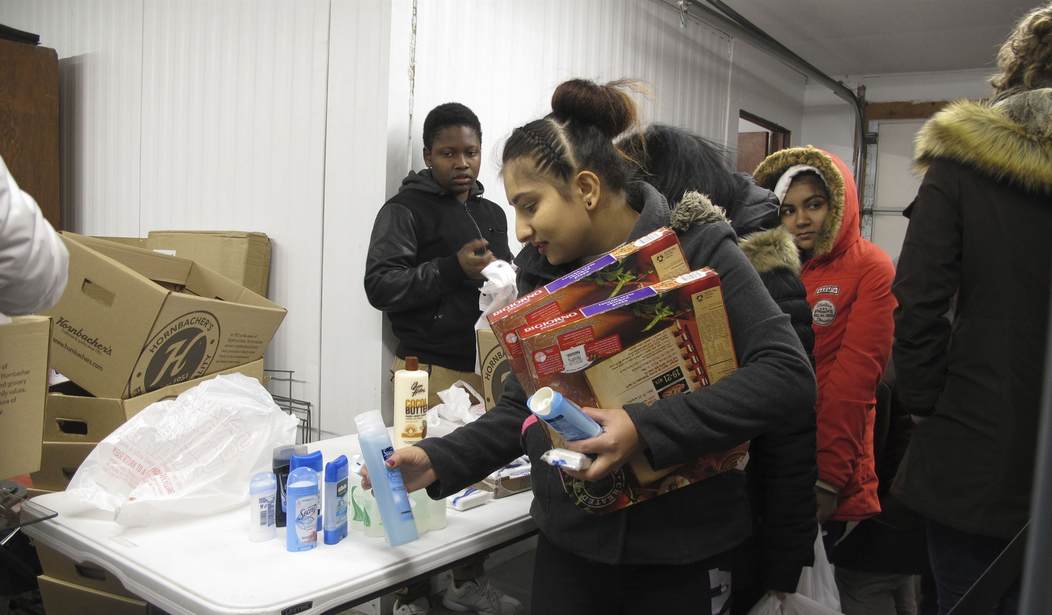In crises like the coronavirus pandemic, it’s only natural that people look to government. The American framework of federalism has been critical, with local, state, and federal governments all taking on different roles in the response. But government alone cannot get the job done.
As critical as the work of government has been, its efforts to get out of the way of business and the civil society – by lifting regulations that inhibit our ability to quickly develop cures or help those in need – are just as important and show how indispensable these other sectors are to the solution.
Civil society in particular is crucial, but what the term actually means is often misunderstood. Civil society is comprised of our churches, charities, community organizations, professional groups, and our families. It’s distinct from the government and business sectors.
Without the foundation of a strong civil society, a nation, its government, and its economy are weak – either clearly so, or just below the surface – and will show signs of failure when tested with things like pandemics, wars, or civil unrest. On the other hand, a strong civil society can help a nation weather almost any storm.
America’s vibrant civil society is one of the reasons that this nation has withstood so many tests throughout our history, and it is civil society that will help America get through this one.
Churches are keeping their food pantries open and are even providing home deliveries for the elderly and those too sick to venture outside their homes. Churches and private charities are getting meals to poor children who no longer have access to school breakfasts and lunches because schools are closed. They are taking up collections to help those who have lost their jobs, getting them money immediately as they wait for unemployment insurance and other government assistance.
Recommended
Nearly 17 percent of America’s hospitals are religiously affiliated, treating millions of patients each year. As cases of COVID-19 have surged, they’ve become even more critical to the country’s capacity to treat patients.
Rather than shut down to comply with social distancing orders, churches are live streaming worship services on the Internet. Even people who weren’t regular churchgoers are tuning in to get mental, emotional, and spiritual support and to find peace in a world that seems more upside down than ever.
Organizations are hosting webinars with homeschooling experts and creating websites to tell parents about online resources to help them teach their children while they are forced to stay home.
Even at The Heritage Foundation, we are convening a commission to bring together some of the nation’s top experts and thinkers in medicine, economics, government, humanitarian relief, and human behavior to help navigate our nation through this crisis and toward recovery. The mission is to save both lives and livelihoods.
While government needs to play a role in crises like the one we’re in, in many ways, our families and our churches, charities, and community organizations – and the private sector – are able to respond more quickly, efficiently, and compassionately, and can be more creative and flexible in meeting the needs of people.
Moreover, unlike citizens in many other nations, the American people are not virtual wards of the state, helplessly waiting for government to take care of their every need in a time like this. While we consent to allow government to play an active role in fighting this pandemic, our civil society provides an even greater way to help us take care of one another.
A strong civil society that steps up during a crisis doesn’t develop in a vacuum. It’s the product of many things. It’s part legacy of past generations, part patriotism and love of country, and part compassion of a just and moral people. It also flourishes when government doesn’t overly regulate or tax its people, leaving them both the flexibility and the resources to create, innovate, inspire, and provide aid to others.
In this way, civil society captures the awesome power of the American spirit and focuses it on doing the most good.
At a time when people are clamoring for government to respond to the coronavirus pandemic with enormous sums of money and exceptional powers to shut down businesses and keep people in their homes, we also need to remind government that our civil society will do just as much – if not more – than government to help the American people weather this crisis and recover from it.
Perhaps this crisis will also provide a needed reminder to the American people that our civil society is the very foundation of a free and prosperous nation, that it keeps us connected in a world becoming increasingly disconnected, and that it can help us all – Americans from many places and many backgrounds – to be a people united once again.

























Join the conversation as a VIP Member